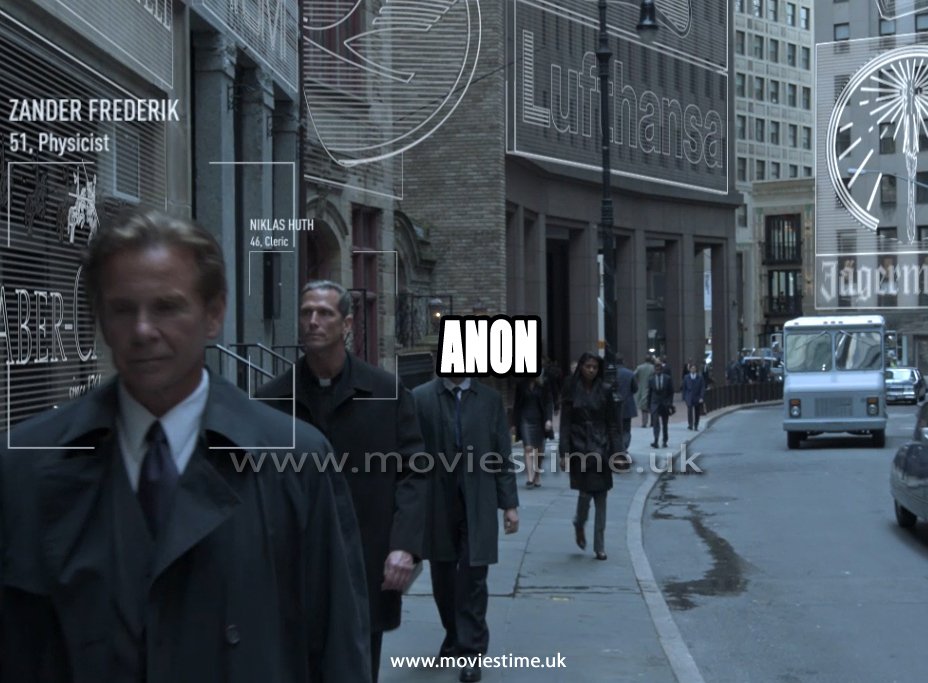Anon– 1 Best of Classic Movies
Introduction:
“Anon,” a cutting-edge thrill ride accessible on Netflix, dives viewers into a reality where security is out of date and each snapshot of human life is recorded and observed. Coordinated by Andrew Niccol and featuring Clive Owen and Amanda Seyfried, this intriguing film offers a chilling investigation of a general public where namelessness is a remnant of the past. In this 1,500-word review, we dive into the perplexing account, convincing characters, and tragic subjects that characterize “Anon.”
Premise:
Set in a not-so-distant future reality where cutting-edge innovation has killed protection, “Anon” follows analyst Sal Frieland, played by Clive Owen, as he researches a progression of murders in a general public where namelessness doesn’t exist. In this world, known as the Aether, every individual’s look is recorded by their eyes, making a constant stream of visual information known as “Imagination”. However, when Frieland experiences a baffling lady named The Young Lady, played by Amanda Seyfried, who can control the framework and delete his computerized impression, he becomes trapped in a complicated snare of duplicity and interest that challenges how he might interpret reality.
Character Research:
At the core of “Anon” are its mind-boggling and multi-faceted characters, every one of whom wrestles with the results of living in a world without protection. Clive Owen gives an arresting presentation as Sal Frieland, a world-exhausted investigator who explores the cloudy waters of reconnaissance and debasement with emotionless assurance. Frieland’s excursion from distrust to interest and at last to a frantic quest for truth reflects the crowd’s plunge into the tragic scene of The Ether. Amanda Seyfried’s depiction of The Young Lady adds a fascinating layer of secret and uncertainty to the film as her personality moves Frieland’s discernments and powers him to go up against awkward bits of insight about the world he possesses.
Protection and Reconnaissance Topics:
“Anon” investigates current and provocative points connected with protection, observation, and the morals of innovative progression. In The Ether, each part of human existence is recorded and observed, killing the idea of namelessness and obscuring the lines between public and confidential space. The film brings up convincing issues about the results of facing a daily reality such that individual information is continually gathered and commodified, and where individual personality is characterized by computerized impressions instead of resided encounters. As Friedland digs further into the secret encompassing the Young lady, he goes up against the upsetting reality that the very innovation intended to safeguard society can likewise be utilized to control and control it.
Visual Feel and Film Style:
Outwardly striking and carefully created, “Anon” makes a tragic world that is both natural and disrupting. Chief Andrew Niccol utilizes smooth cinematography and a moderate creation plan to make a feeling of sterile style that misrepresents the hazier propensities of the film’s story. The utilization of expanded reality overlays and perspective shots submerges viewers in the Aether, obscuring the lines between the computerized and actual domains. From the neon-lit roads of the city to the smooth insides of cutting-edge condos, everything about the film’s visual style adds to its air strain and feeling of premonition.

Account Intricacy and Philosophical Depth:
“Anon” isn’t simply a tragic thrill ride; it is likewise a provocative investigation of existential inquiries and moral difficulties. Through its complex account and philosophical subjects, the film moves viewers to contemplate the idea of personality, cognizance of thought in an undeniably digitized world. As Friedland wrestles with the Young lady’s secretive presence and the ramifications of her capacity to delete recollections and control insights, he is compelled to go up against his presumptions about the real world and the idea of truth. The film’s equivocal closure leaves viewers with waiting inquiries regarding the idea of observation and the delicacy of human independence during a time of mechanical power.
Heritage and Basic Income of Anon:
Since its delivery, “Anon” has accumulated blended surveys from pundits, with some adulating its climatic visuals and intriguing topics, while others censure its pacing and story vagueness. Regardless of its polarizing gathering, the film has found a dedicated following that values its tragic vision and philosophical profundity. As innovation advances and inquiries of protection and reconnaissance become perpetually squeezing, “Anon” fills in as a useful example of the risks of forfeiting individual in the quest for security and comfort.
Conclusion:
“Anon” presents a convincing and provocative investigation of security, reconnaissance, and the human condition in an undeniably digitized world. With its unpredictable story, convincing characters, and striking visual style, the film submerges viewers in a tragic scene where obscurity is an extravagance and the truth involves discernment. As criminal investigator Sal Frieland explores the cloudy waters of the Aether and faces the puzzling presence of The Young Lady, viewers are brought into an arresting story of trickery, interest, and existential retribution. Whether seen as a wake-up call, a science fiction spine chiller, or a philosophical contemplation on the idea of truth, “Anon” offers an opportune and provocative realistic experience that waits long after the credits roll.

